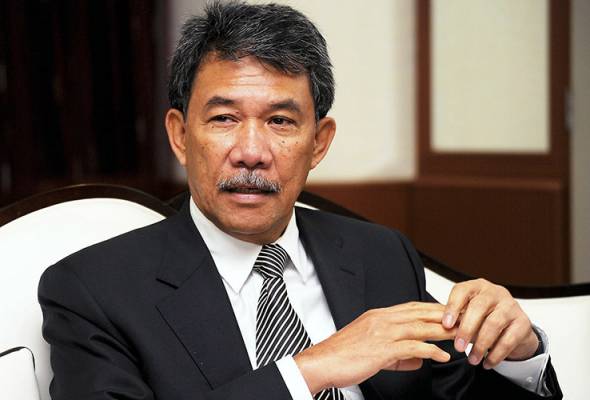SEREMBAN: The government needs to start bolstering its domestic sectors, particularly local food production, to reduce its import bill and ride out the economic turbulence caused by Covid-19, says Datuk Seri Mohamad Hasan.
The Umno deputy president said the authorities should, among others, further develop the agriculture and agro-industry sector and aim for as much self-sufficiency as possible to preserve food security.
He said equally important was the need to develop animal husbandry and the related animal feed industry, as well as the aquaculture industry to ensure the country becomes a net exporter of fishery products.
“Bank Negara expects our economy to be impaired by output loss from Covid-19, the movement control order (MCO) and the disruption in commodity supply.
“Many Malaysians are worried that we are heading for a severe recession and one that could last longer than expected, leading into a depression and stagflation.
“Is Malaysia prepared for this?” he asked in a statement Tuesday (April 14).
The central bank had on April 3 projected Malaysia’s economic growth to be between – 2.0% and + 0.5% in 2020.
Mohamad said while there were many external factors affecting the local economy which were beyond the government’s control, there were areas the authorities could focus on to reduce the impact of Covid-19.
“Malaysia is blessed with ample, fertile land, water and a long coastline which is perfect for agriculture and food production.
“Hence, we should develop our agriculture and agro-industry aiming for as much self-sufficiency as possible,” he said.
Mohamad said there was also a pressing need for food security with Malaysia needing to import more than 800,000 metric tonnes of rice annually and reports suggesting that Vietnam was stockpiling rice and suspending new export contracts.
“Beyond rice, we are also a net importer of wheat, seafood, beef, vegetables, sugar and many other products.
“Malaysia should take action to implement import replacement strategies in this area,” he said.
Felda, Mohamad said, can play a major role in this and become a major agriculture powerhouse beyond just palm oil.
Mohamad said although Malaysia has the 29th longest coastline in the world and is 16th in terms of fish caught from captured fisheries, yet the country was still a net importer of fishery products.
“Malaysia needs to optimise the use of scientific knowledge and technological advancement in aquaculture as a sustainable source of food and income generator for fishing communities,” he said.
Mohamad said in the post-pandemic environment, there will also be an increase in demand for the country’s natural resources such as rubber for latex medical products to petroleum, natural gas and palm oil products for detergents, soaps and edible oils
and plastics.
“Indeed, these are some of the many concerns keeping me up at the moment and I stress that we must seriously address these issues to keep Malaysians employed and provide food on the table.
“Having food on the table is paramount for the rakyat and if we can build our safety net here, we can use this as our base to establish economic drivers and incentives for other promising and complementary sectors of our economy,” he added. – The Star

